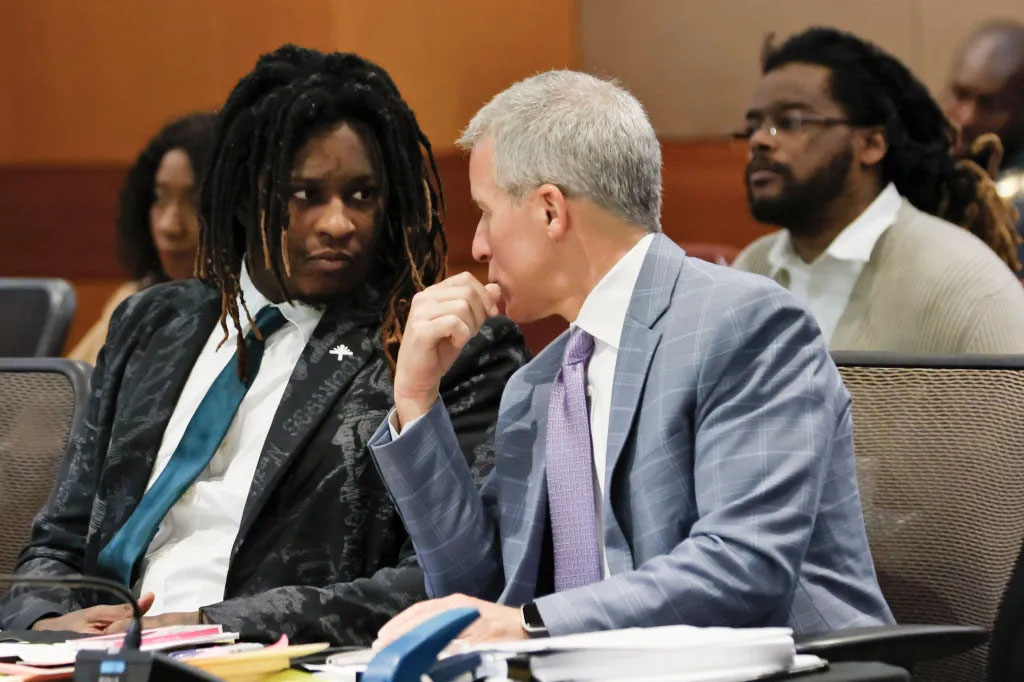
Photo Credit: Getty Images
In a surprising legal development, Grammy-winning rapper Young Thug, born Jeffery Lamar Williams, was released from jail on Thursday after pleading guilty to gang, drug, and gun charges. This plea ended a nearly two-year ordeal, the longest criminal trial in Georgia history. The 33-year-old rapper, who had been detained since his May 2022 arrest, spent over 900 days behind bars.
Young Thug, a prominent figure in hip-hop, was accused by Georgia prosecutors of using his record label, Young Stoner Life (YSL) Records, as a front for a violent criminal syndicate they alleged was responsible for much of Atlanta's gang activity. The charges included allegations of murder, armed robbery, and carjacking, with prosecutors initially seeking a 45-year sentence. However, plea negotiations failed, and Superior Court Judge Paige Whitaker ultimately sentenced him to time served and 15 years of probation, allowing for his release on Thursday night.
During a heartfelt speech in court, Young Thug expressed remorse, acknowledging his role in the charges and apologizing to all involved. "I take full responsibility for my crimes," he said, reflecting on how his kindness and openness led him to a situation he described as "falling on me." Judge Whitaker, urging him to make positive changes, said, "I want you to try to be more of the solution and less of the problem."
The plea bargain required Young Thug to plead guilty to six charges, including gang, drug, and gun offenses, and a no-contest plea to racketeering. In addition, the judge imposed strict conditions, such as 100 hours of community service, a prohibition on gang contact, and a ban from Atlanta's metropolitan area for the first decade of his probation, barring special events.
This conclusion brings a multi-defendant trial to an end. Originally involving 28 individuals, the case had encountered numerous setbacks, including courtroom disturbances, hacked Zoom calls, and even a deputy arrested for allegedly smuggling contraband to a defendant. The rapper's release marks a dramatic turn in a case that not only drew public scrutiny but sparked debates over freedom of expression, as some argued the use of rap lyrics as evidence against him and others in the trial was unjust.
















